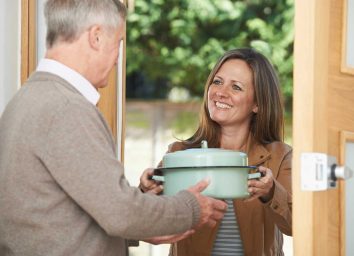15 Signs You’re Eating Your Feelings
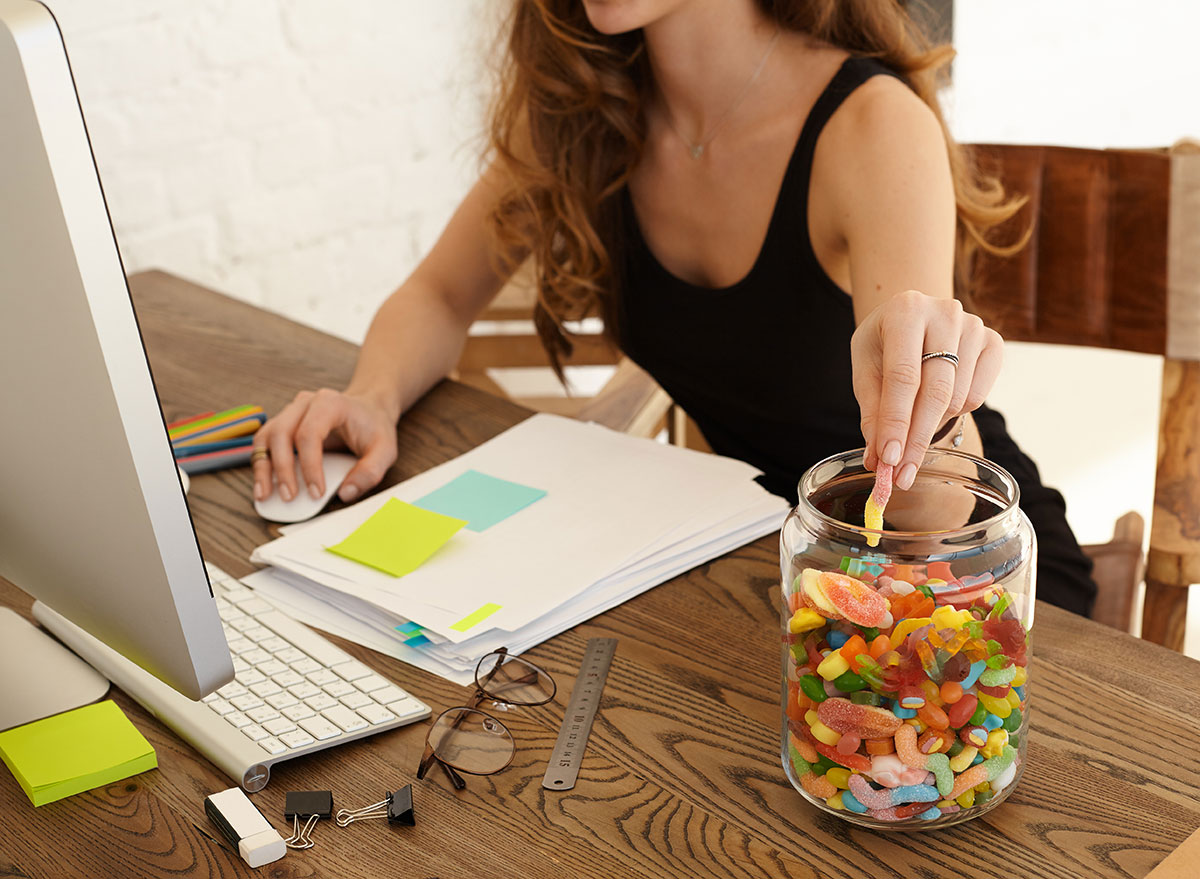
When Whitney Houston sang “I get so emotional, baby,” I like to think she got the idea while eating Chinese food in her pajamas, alone on a stool in her kitchen at 2:00 a.m. I could come up with thousands of kinds of emotional eating—and in my new book You Can Drop It!, you’ll discover how to handle any of them, and lose up to 100 pounds, like me.
But here’s a sampler. Which sound familiar to you?
Anger Eating
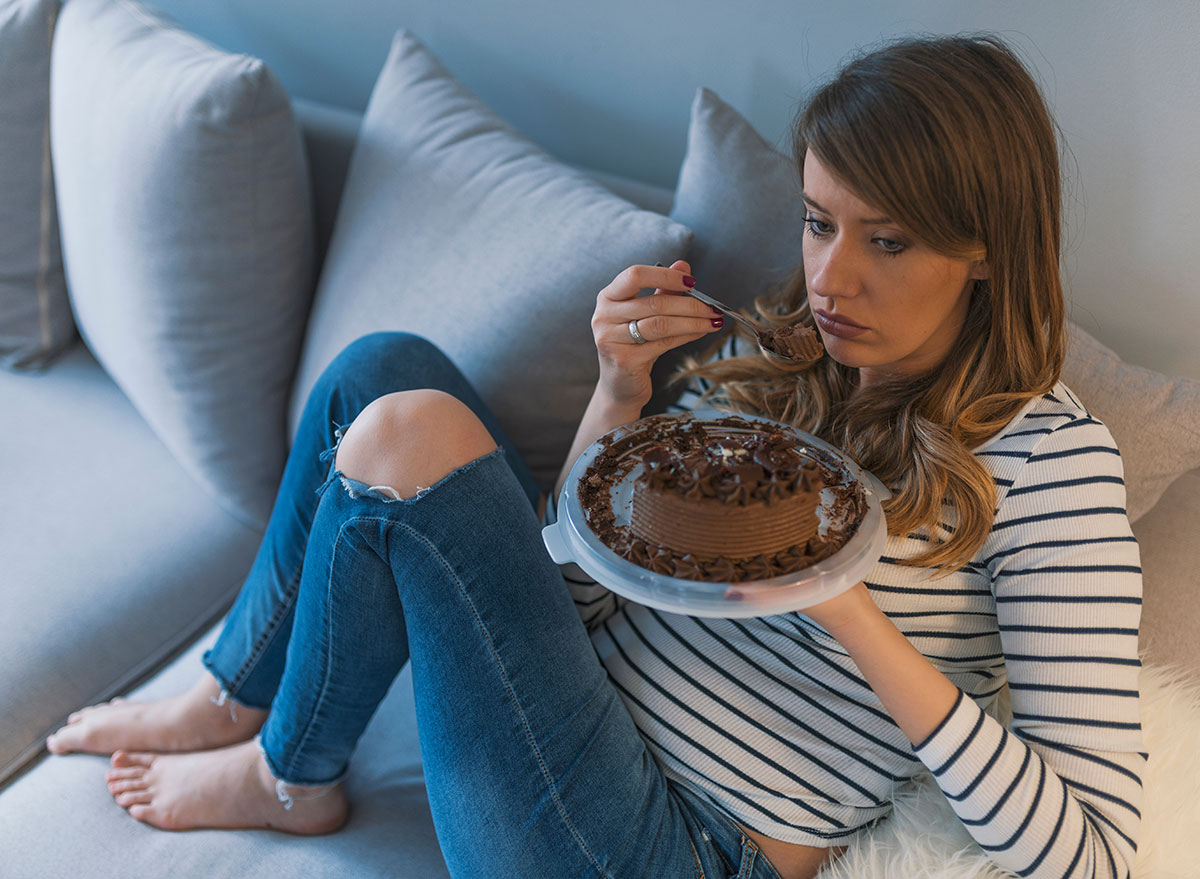
When you’re mad as hell and you’re going to take it out on that poor bowl of egg noodles and butter or cereal and milk.
Avoidance Eating
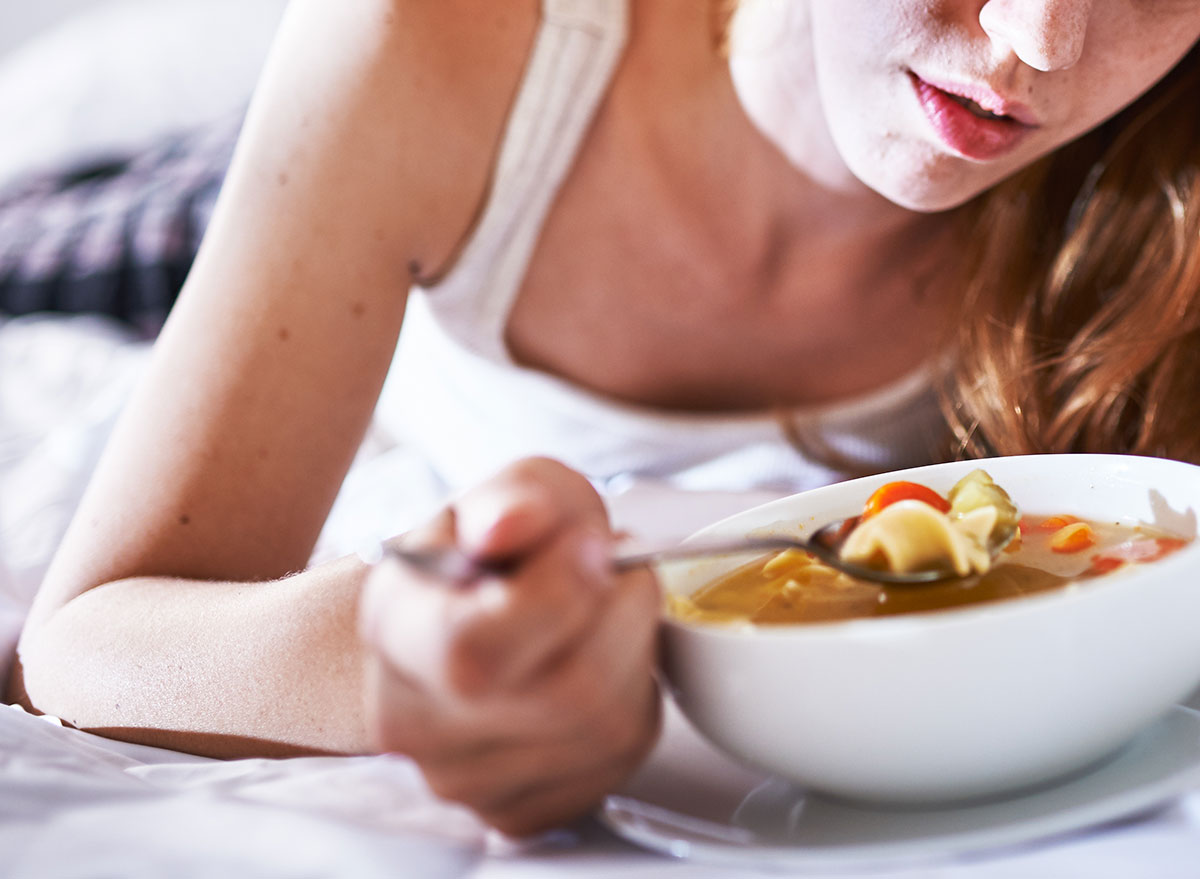
When you have a deep and latent issue, like the passing of a loved one or a dysfunctional relationship. You’re eating rather than facing the deeper problem or insecurity.
Comfort Eating (Of All Kinds)
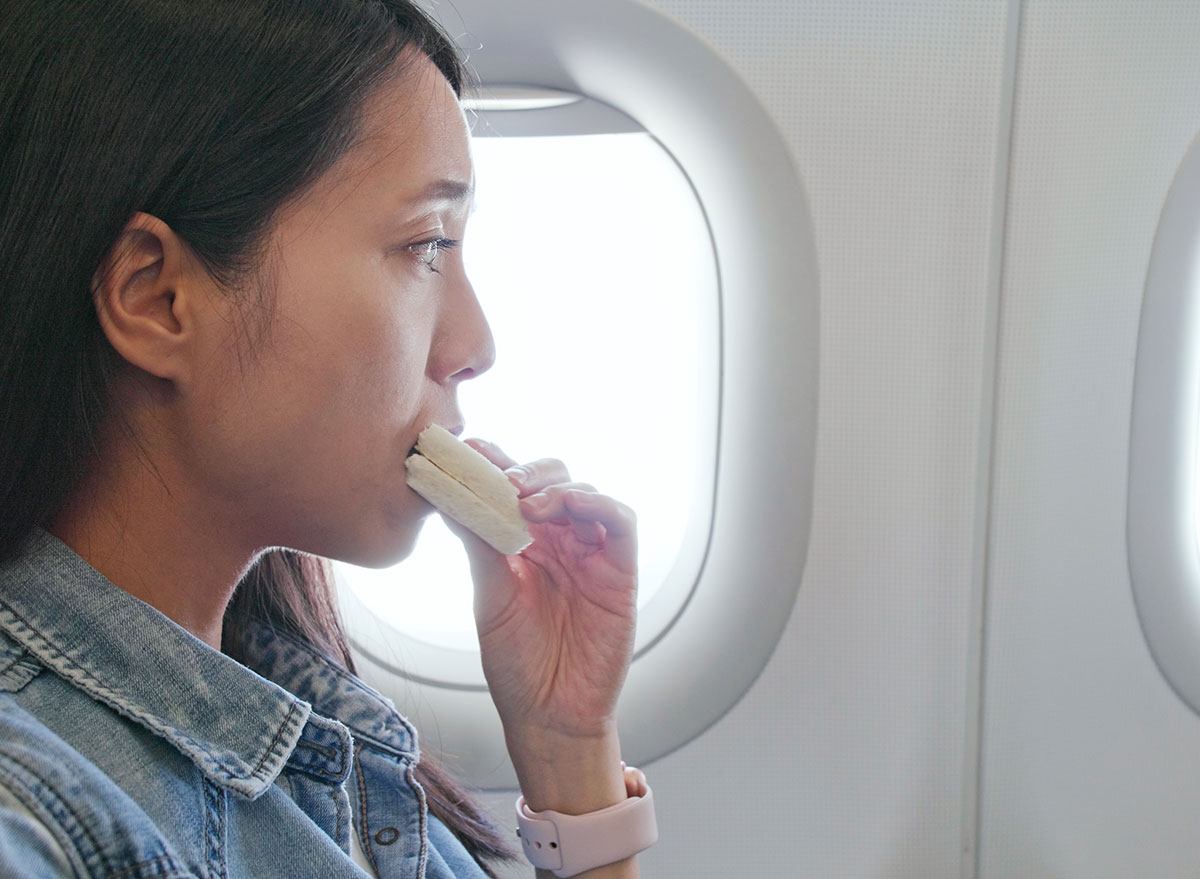
When you use food to soothe you, because you think you’re too old for a pacifier. This can happen under any number of circumstances, including:
- On airplanes: You’re a combination of exhausted, homesick and dehydrated and there’s comfort in eating whatever the plane or hotel offers.
- PMS: Food is often not as much a biological need as it is a source of comfort when you may be feeling bloated and icky.
- Under the weather: You would think people would lose weight when they’re sick because they’re either sleeping or filling up on tea and soup. Yet it’s common for people to gain weight when sick. You’re lying low and not exerting any energy. Friends bring you treats. You find comfort in a large matzo ball in your chicken noodle soup, in a large bagel or pasta.
- Self-Isolation: Who isn’t wanting to binge during the coronavirus quarantine?! Spend your time instead reading You Can Drop It!
Companion Eating
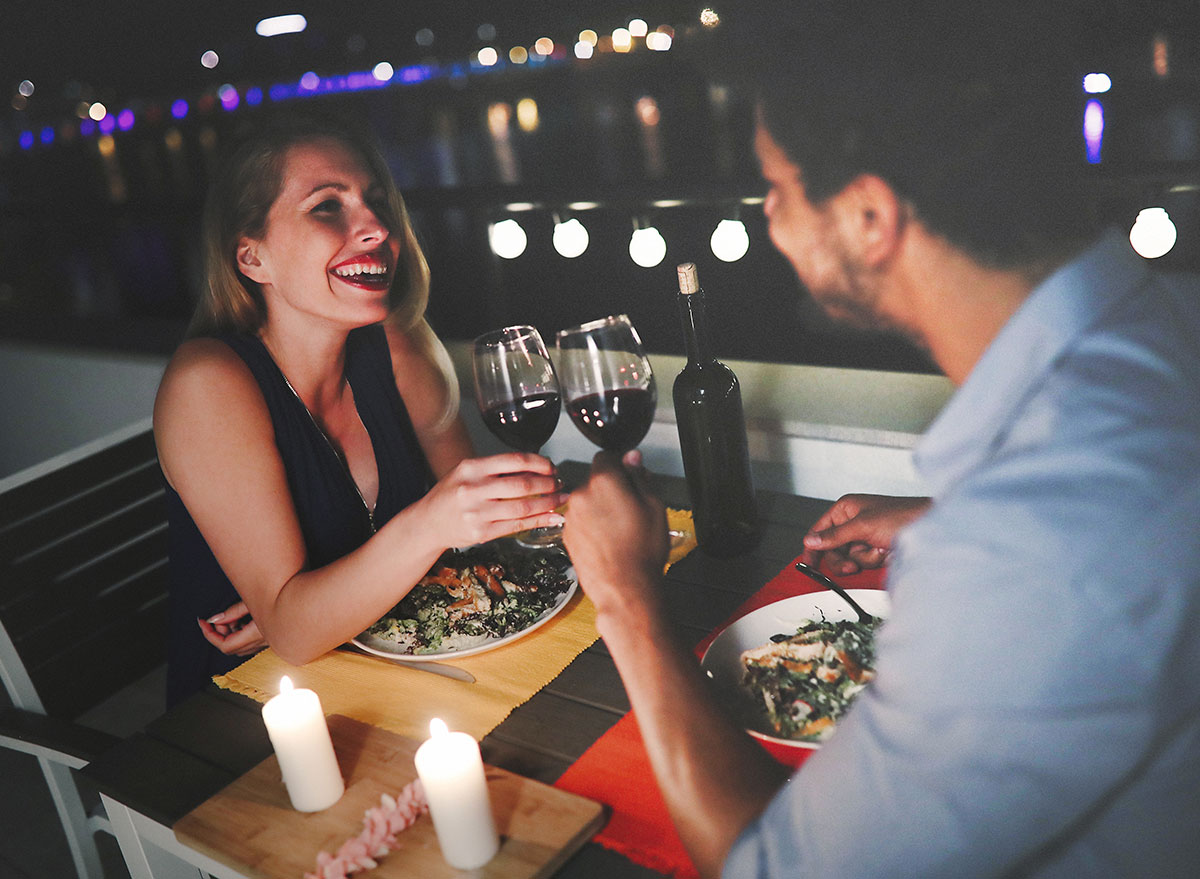
When eating together with a friend or spouse is what bonds you, and you continue to engage in unhelpful eating behaviors with this person (or people) because you fear there isn’t a relationship without it.
Fear of the Unknown Eating
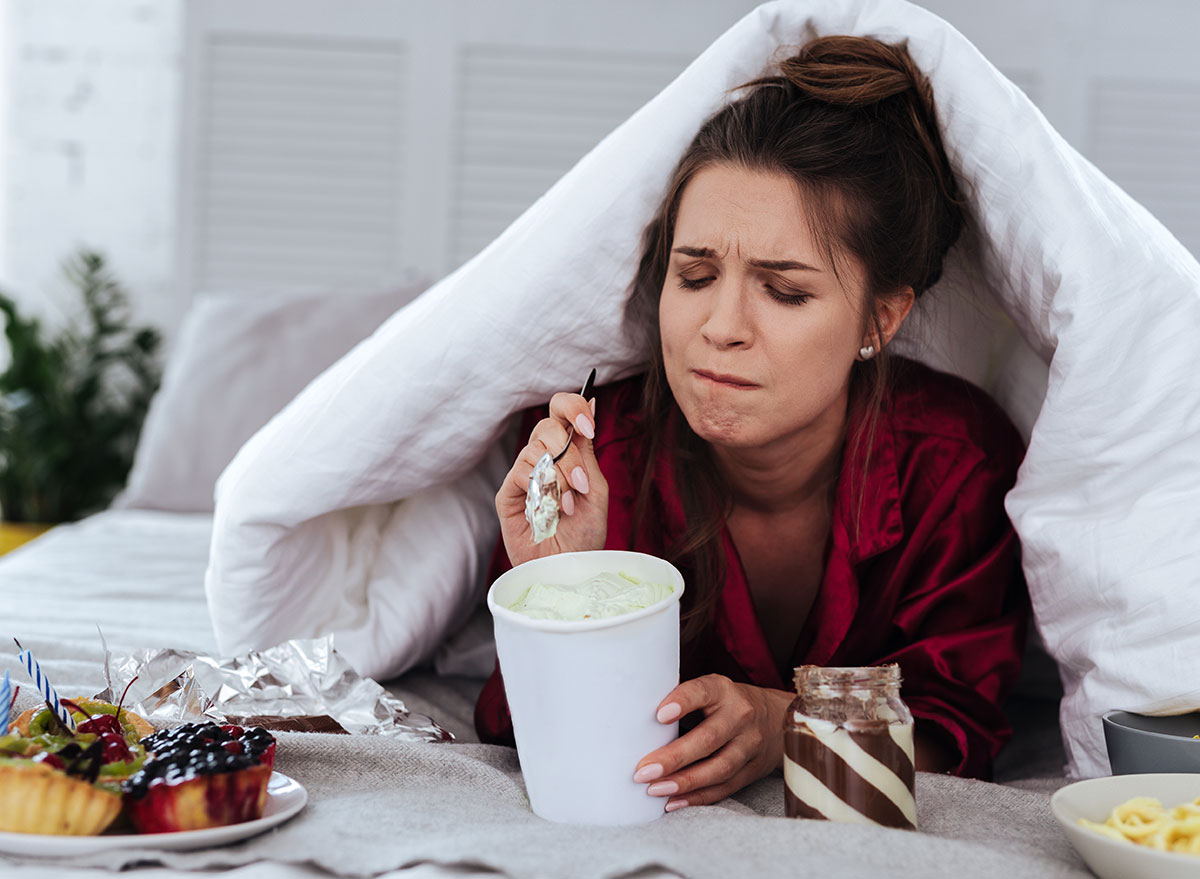
When you’re unsure of an anticipated outcome, e.g., a high school senior waiting to hear back from colleges, or someone waiting for that all-important post-first-date text or a job applicant waiting for an offer—it can make a person mad, as in crazy. This can be a stronger feeling than even hate or anger. One may confuse this unsettling feeling in the stomach with hunger and suppress it with food for lack of a better option.
FOMO Eating
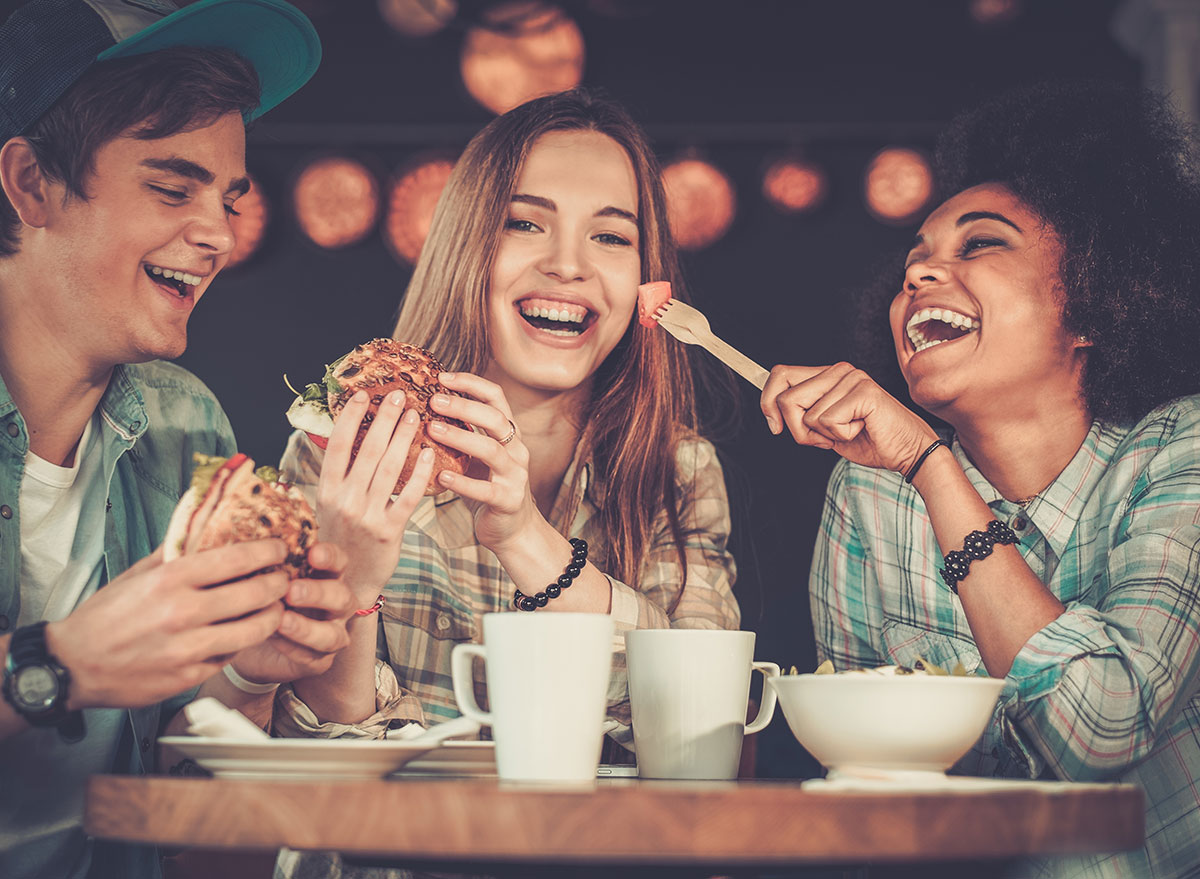
When you’re in a group setting and feel as though you need to eat or drink with everyone else so you aren’t left out. This happens frequently in the workplace when someone brings donuts. Another example is a bottomless brunch, where you feel you need to drink as much as your girlfriends to avoid their comments.
(P.S. Anyone shaming you for making a good choice for yourself is not a friend at all.)
Forced Eating
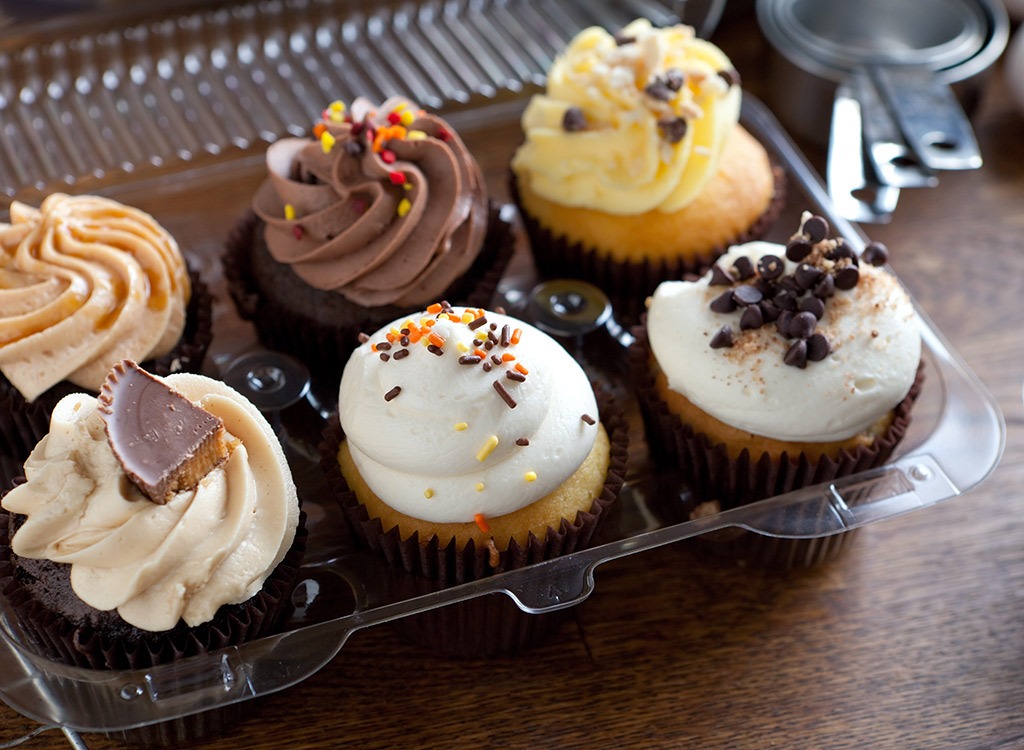
When you feel obligated to eat something because someone else made it for you—made worse if they’re guilting or pressuring you.
Guilty Eating
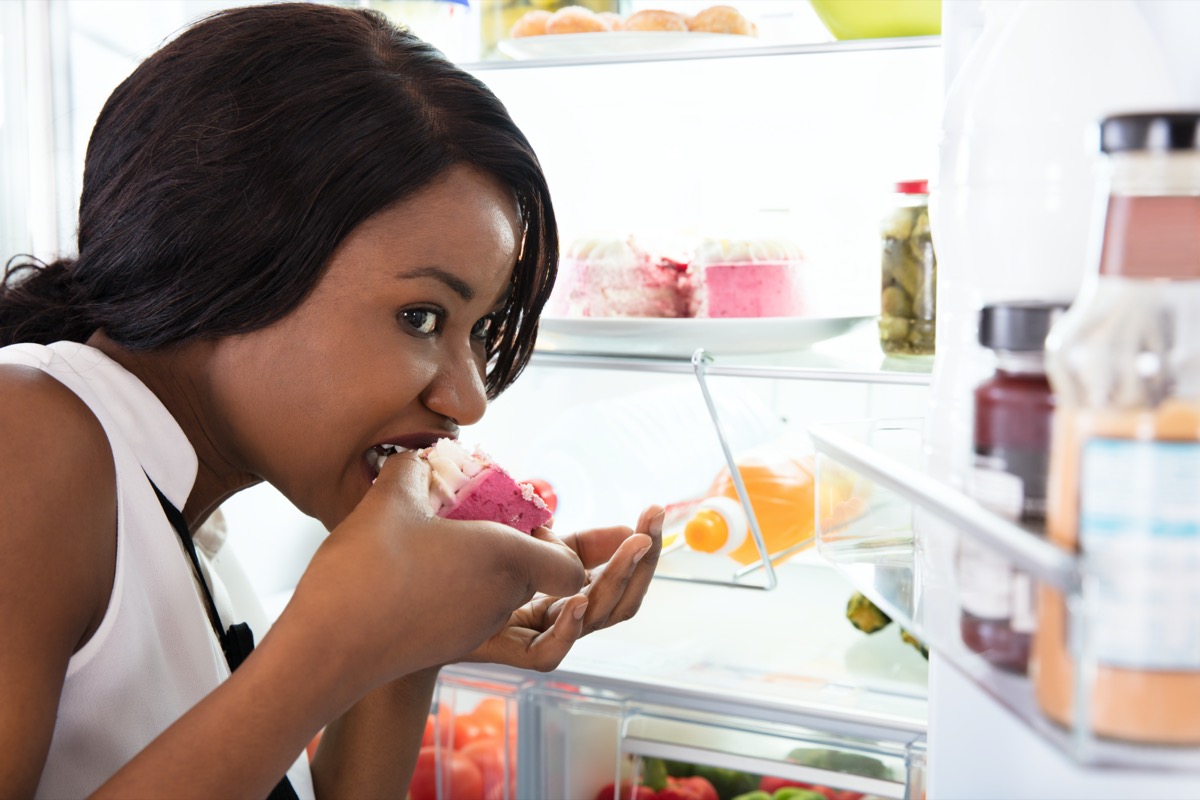
When you fear getting thinner will make someone else feel bad. One of my toughest clients, early in my career, was a brilliant psychologist. She was so logically in tune with her self-sabotaging ways and knew precisely what she would have to do to lose the weight and keep it off. So what was the problem? One day she admitted to me that she can’t slim down—for the sake of her sister. Her sister is still single while my client has a husband and kids. Her sister is lost in her career, and my client was the director of a department at a highly credible organization.
Staying bigger, she felt, was a way of paying her sister back.
Similarly, I’ve worked with mother-child duos in which the mom feels guilty if she loses more than the kid. Same has been true with couples. Sometimes the man loses a lot of weight while the wife struggles. At some point, either she is feeding him more or he feels guilty and creeps up to make her feel better.
“Innocent” Eating
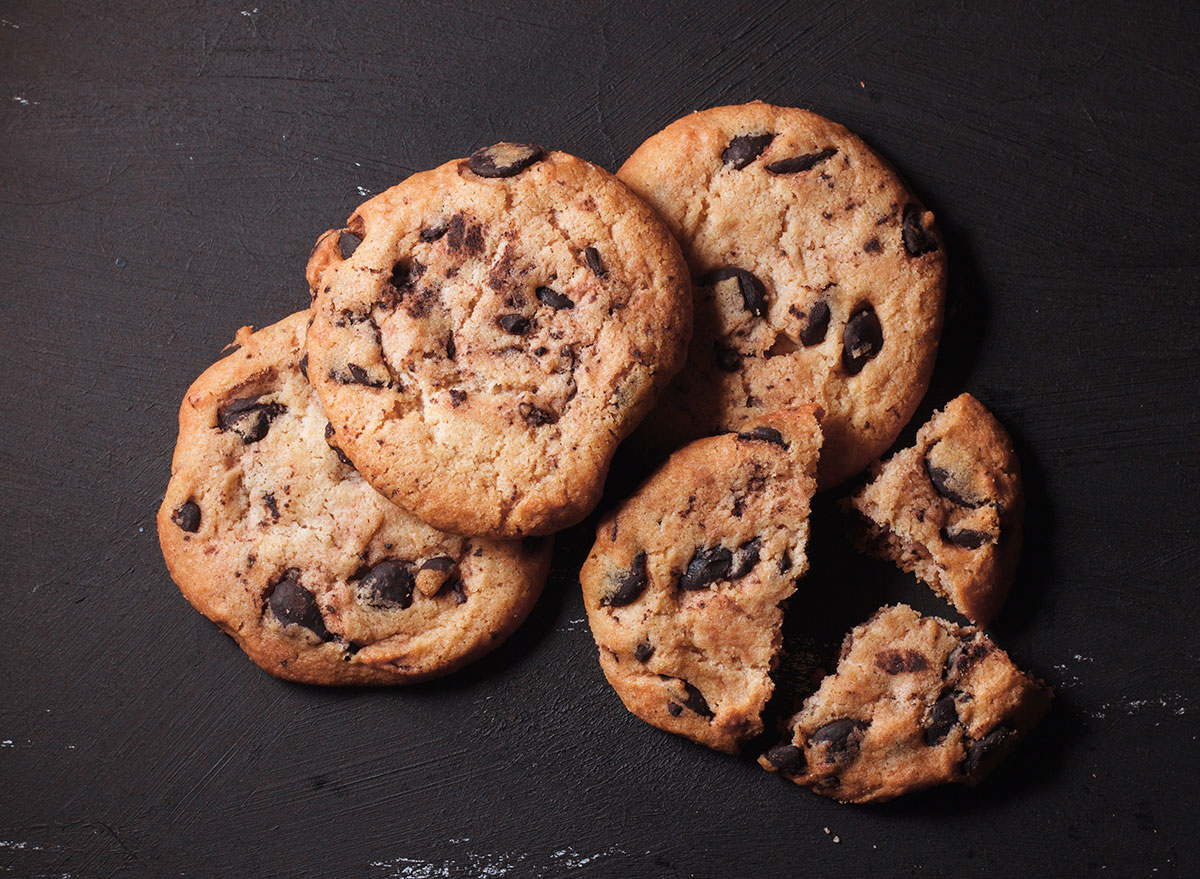
When you say “one night of cookies” can’t hurt, but you know full well that, for you, it leads to a downward spiral.
In You Can Drop It!, I tell the story of a very innocent-seeming sweet woman I work with wants so badly to believe that “one night of eating fried bar foods isn’t so bad,” even though she sees how quickly it snowballs her into days and days of overeating, gaining weight and a feeling of “Ugh, I just don’t want to eat anything healthy.” She does the same thing on Thanksgiving: “One night of pie can’t hurt, it’s the holidays.” But by Sunday, she’s finished the pumpkin, the apple, and the mince pies.
Someone like this may also wish to be able to bake with her children and make cupcakes and cookies on a whim. The kids eat two. The mom eats 18 and then says things like, “I’m so mad at myself.”
The saddest part of my job is sharing the reality of the person’s tendencies. “You must know yourself, not test yourself.” If you know that when you buy those chocolates “for the family,” you end up eating them and get upset, then stop buying them. Same goes with baking. Kids don’t need a mom who bakes; they need a mom with energy, confidence and good health. Kids don’t need a perfect mom; they need a happy and, most importantly, healthy mom.
Lonely Eating
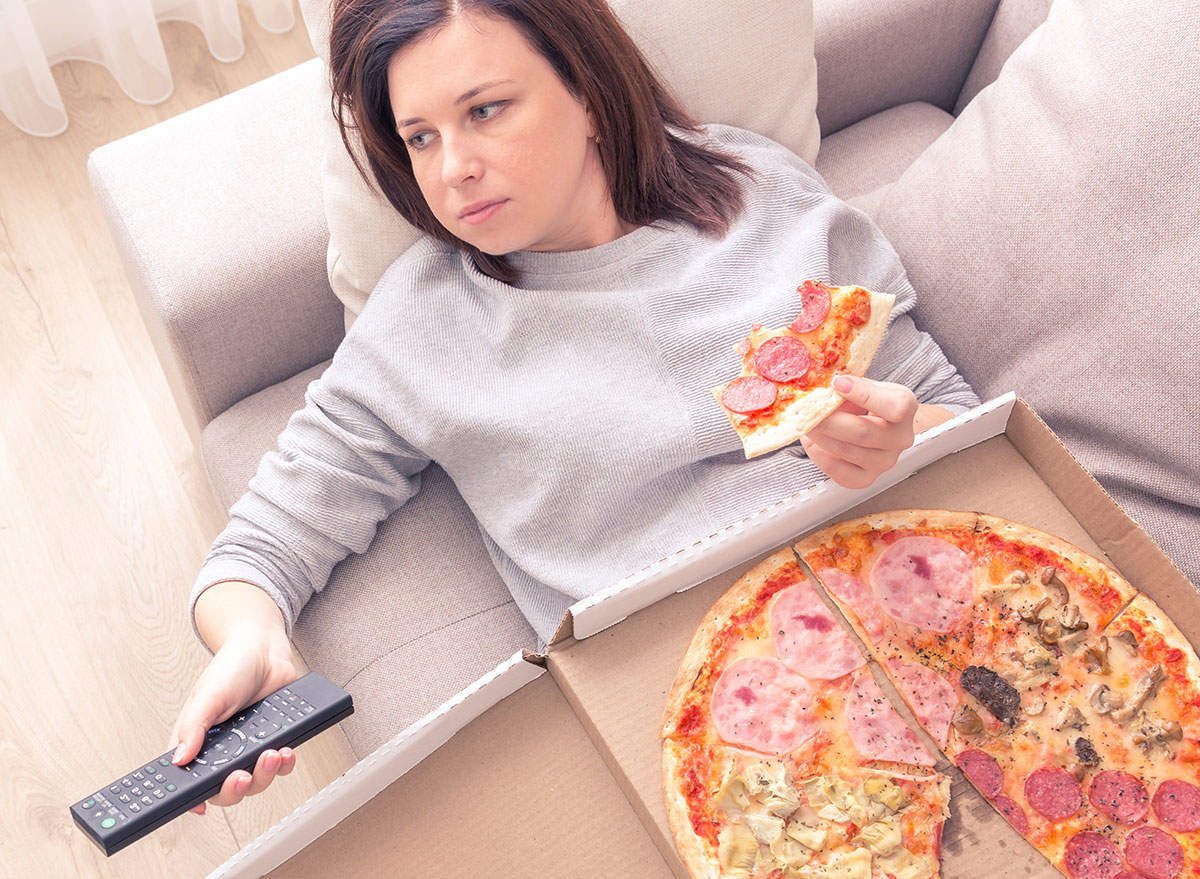
When you’re seeking companionship and want pleasure from a physical encounter.
Novelty Eating
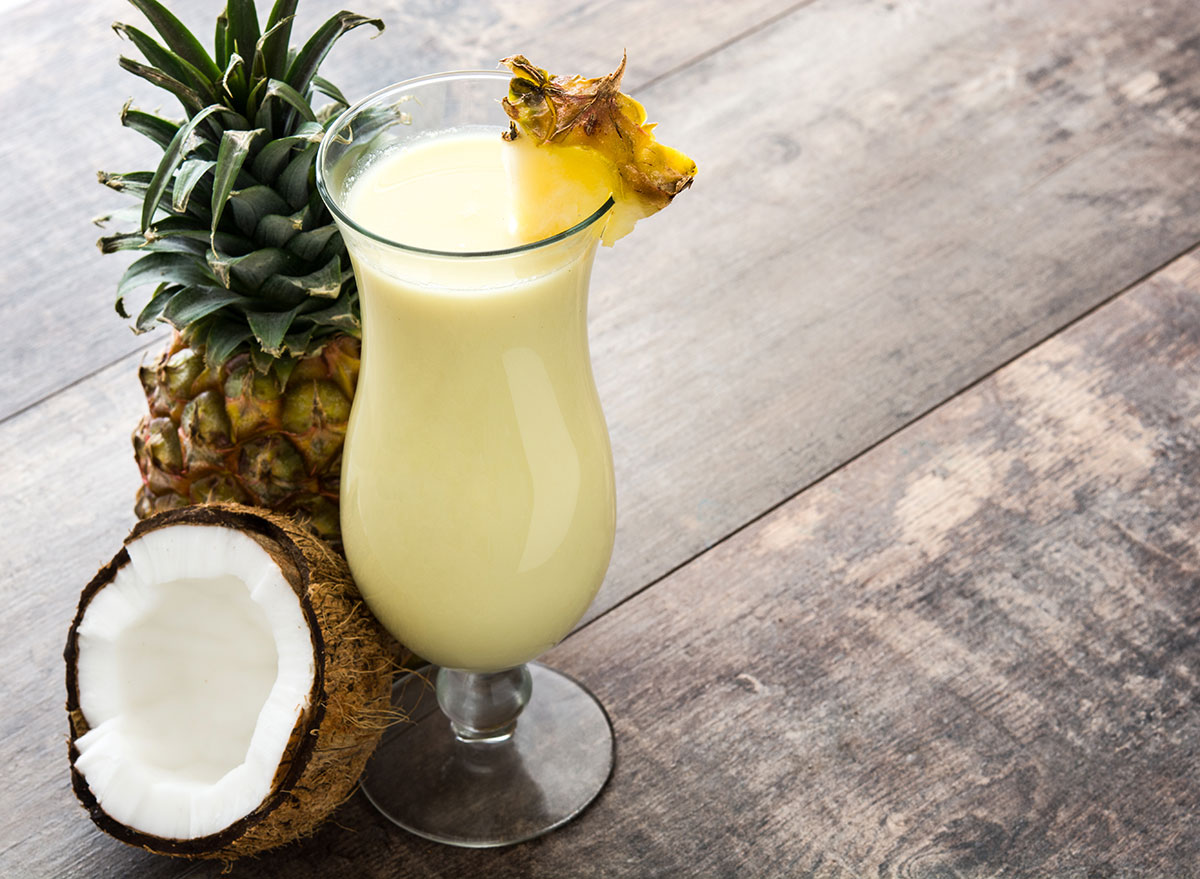
When you feel like you need to eat something because it’s only available to you for a limited time like piña coladas on vacation or pie at Grandma’s.
Procrasti-eating
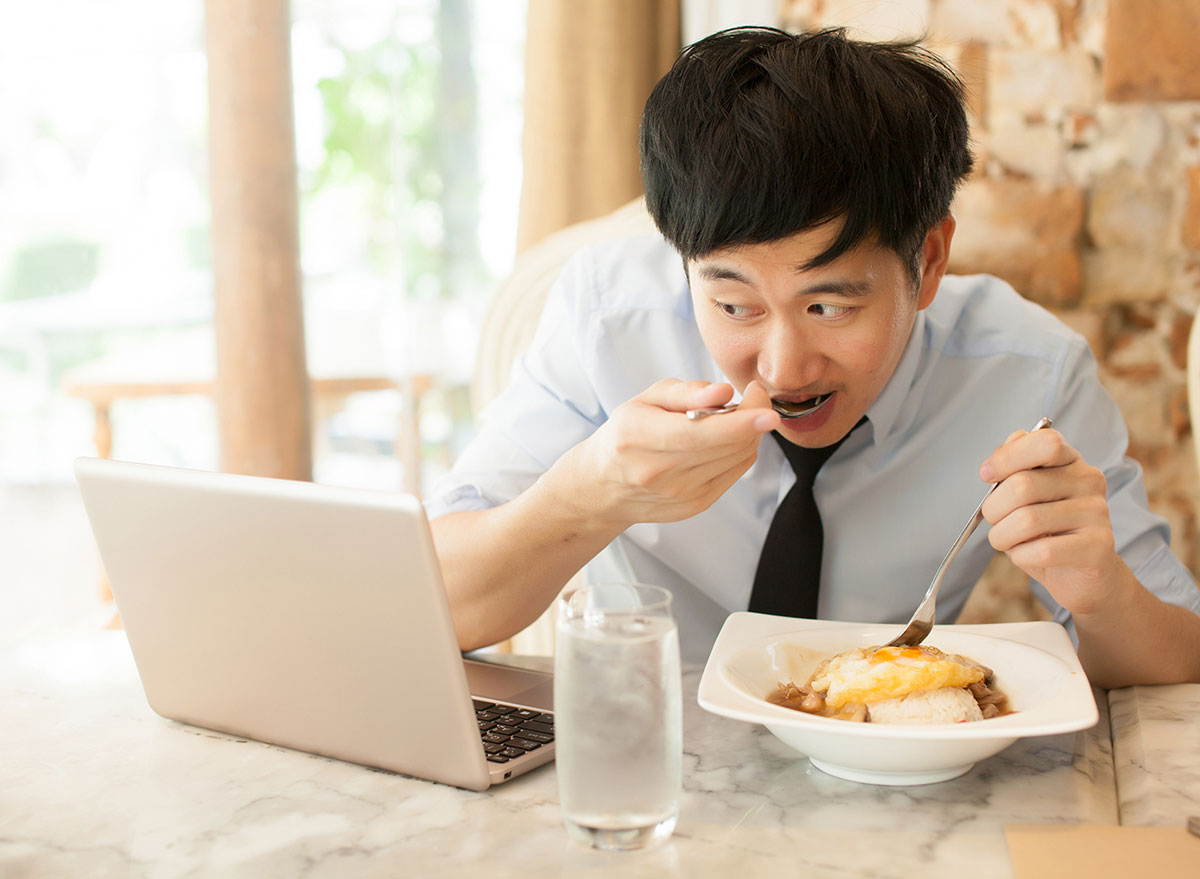
My No. 1. When you know you need to work to meet a deadline or run an essential errand but you justify needing to eat first. (Cigarette smokers do this, as well. Cigarette smokers do a lot of things on this list, actually.)
Self-Sabotage Eating
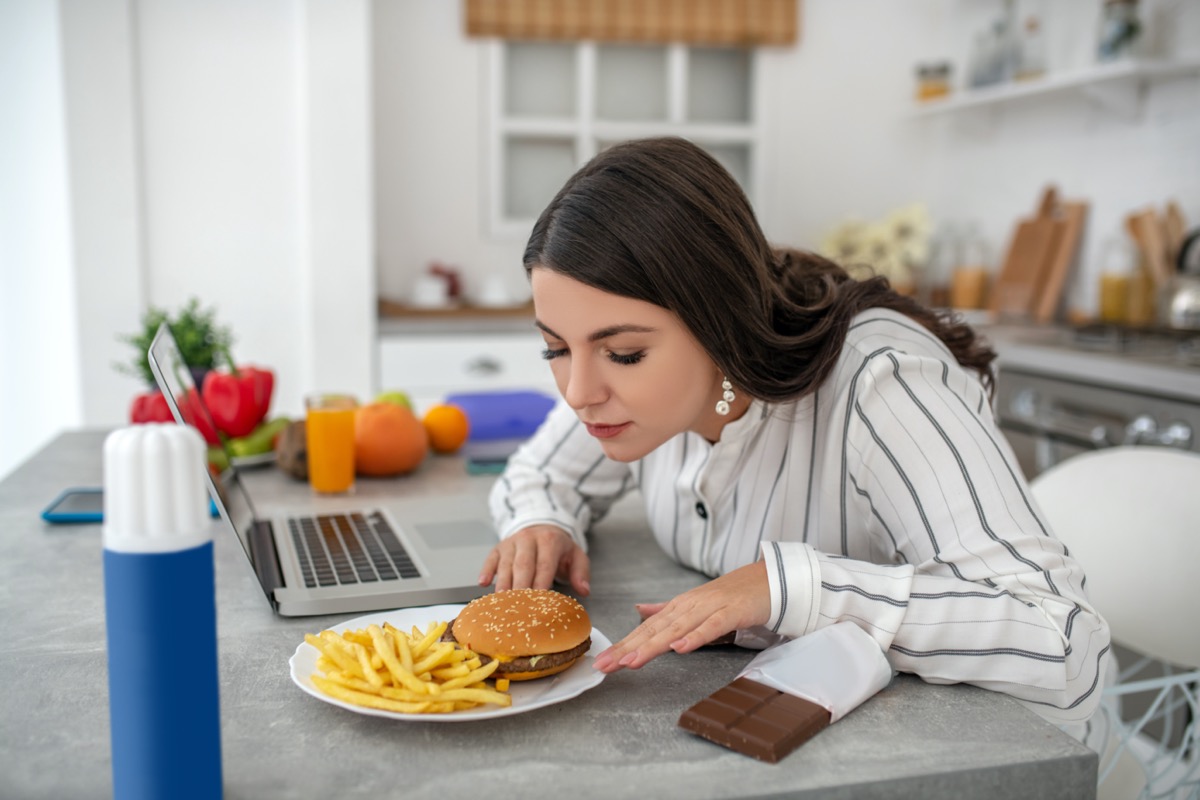
When you’re well aware that you’re doing something negative as you continue to eat. You may start to use justification and excuse language like, “It’s OK, I’ll start Monday” or “It’s OK I didn’t eat all day or won’t eat tomorrow.” The example I use is that sometimes your phone falls and your screen cracks. You can either pick it up and get the screen repaired or take a hammer to it and demolish it. (When I used this example with a friend of mine who diets for sport, he said to me that I must not realize how fun it is to smash the phone. Ha!)
Spiritual Eating
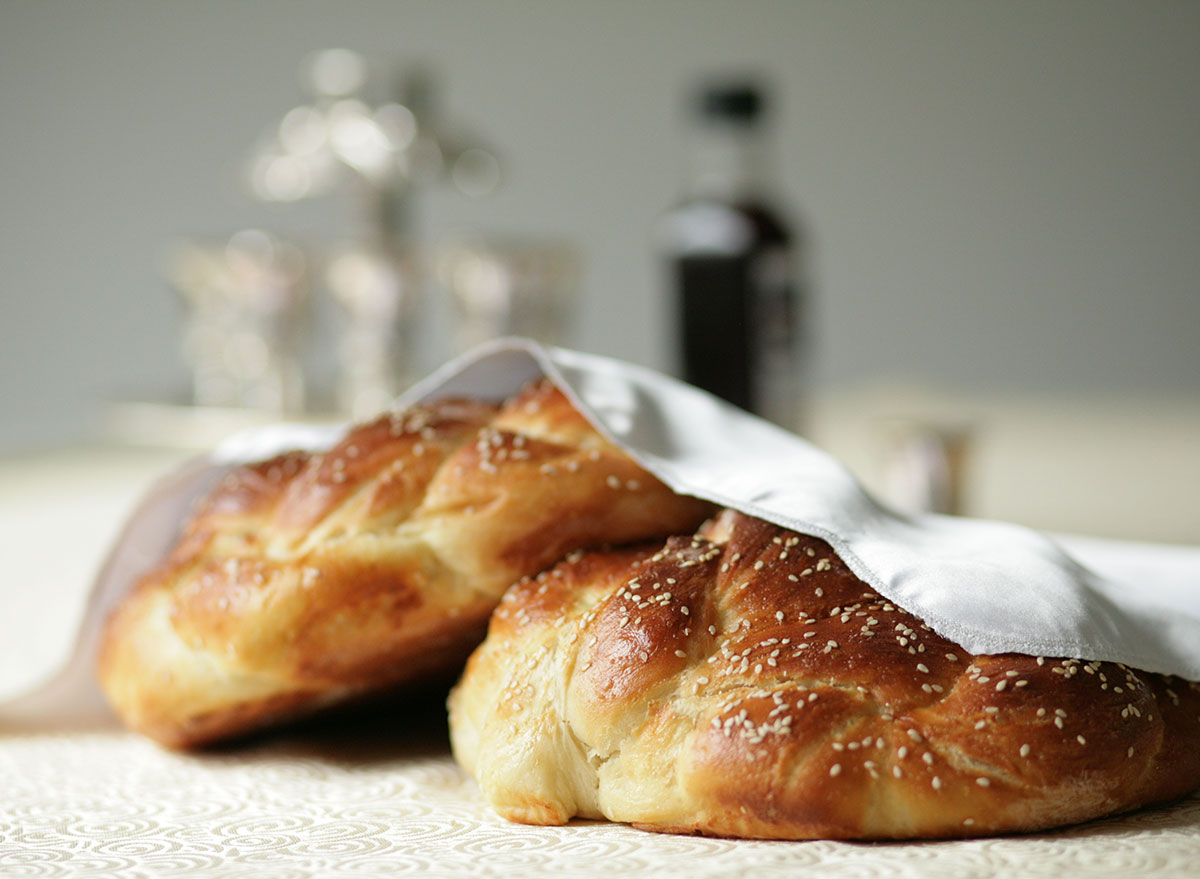
When eating is part of your religious custom. Judaism, for example, comes with a host of spiritually connected eating moments. For example, eating challah bread may be symbolic of good fortune. Eating honey on Rosh Hashanah symbolizes a sweet new year. When religion and spirituality are applied to foods, it adds a whole other layer of emotional eating.
Trash Can / Sense of Completion Eating
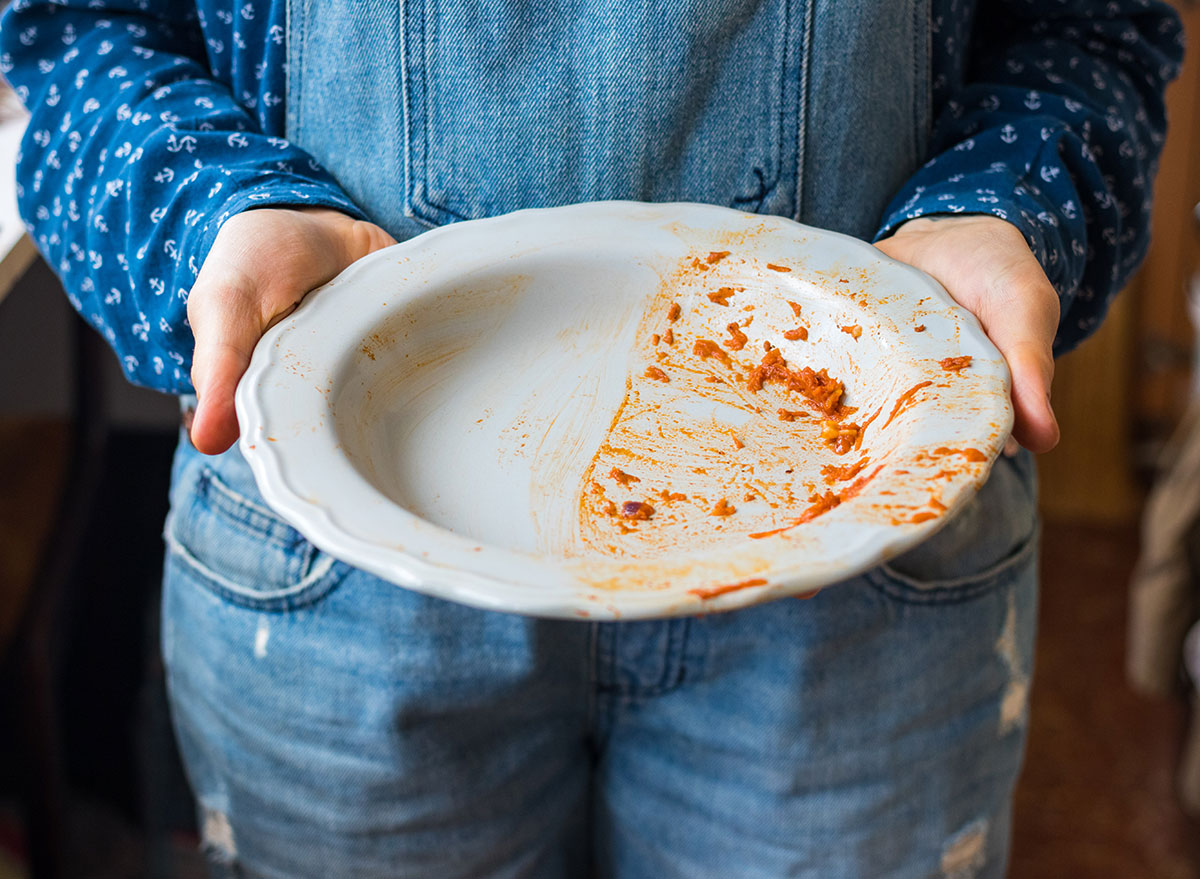
When you don’t want to waste food by throwing it away. If you grew up in a household that made you “clean your plate,” you may relate. Often moms will eat off their kids’ high chairs or you might be tempted to ask a friend at a restaurant, “Are you going to finish that?” It’s important to tell yourself that “it’s better in the trash than in my body” and “it’s better in the waste than on your waist.” Are you the type to keep eating because finishing it gives you a sense of accomplishment or completeness? For instance, you’re done with the cookies but you would rather have the last one and be done with it than wrap it up or throw it away.
Enough is enough. You Can Drop It! will help you drop all these negative thoughts, and it has helped my clients. Men and women of every age. Some with 10 pounds to lose, some with 110 pounds to lose. People with emotional eating challenges. People who never thought they could lose weight and learn how to keep it off. It works for them because it’s practical. There’s no counting calories. No points. No cutting out whole food groups. You don’t even need to exercise (but I promise, once you start feeling amazing, you’re going to want to move your body). Before long, you’ll see that the plan is so easy—and even fun—so you can go on enjoying your food and living your life to the fullest.
Ilana Muhlstein, M.S., R.D.N., is the author of You Can Drop It!, available now on Amazon.



